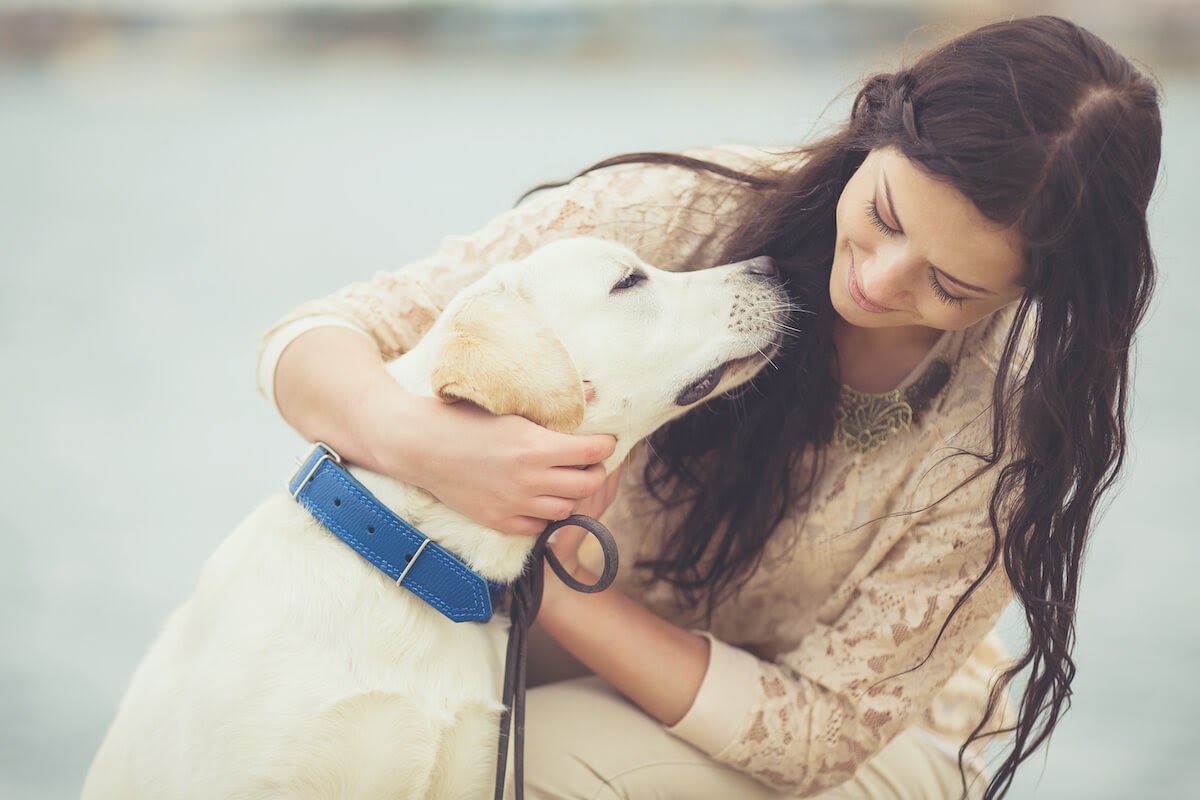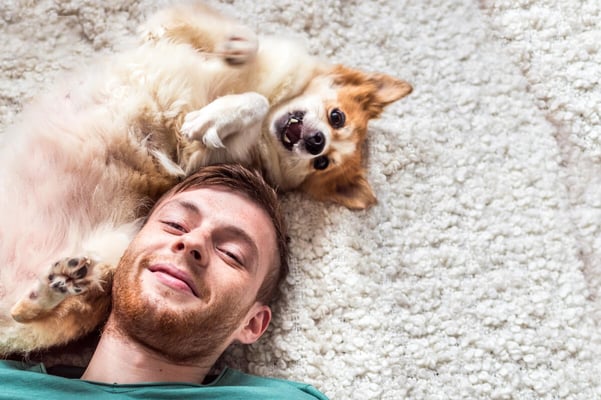Winter is here - the season of toasty fires, snuggly jumpers and frosty days. But the colder weather has been known to make us all shiver, including our furry friends! Shivering is a usually a natural response to the cold, to raise body temperature, and some smaller breeds of dog are more sensitive to the cold due to their thin coats. That’s why, for some smaller breeds, it’s a good idea to invest in a snuggly coat and bed for your pooch in the colder months to make sure they stay nice and cosy!
But shivering in dogs isn’t always due to cold. So if you see your pooch shaking, and it isn’t a cold day, it’s important to keep watch and understand the cause; while shivering is often harmless, it may be due to stress or health conditions. So why do our furry friends shiver and shake?
5 Reasons Why Our Dogs Shake
1. To Dry Off!
Whether it be after a swim, bath or walk in the rain, we’ve all seen the dramatic shake our pooches do to dry off! Dogs are pros at this and it’s thought they are able to remove up to 70% of the water in their coat… by shaking it all onto you! Make sure you have a towel to hand after a soggy outing to soak up excess moisture from your dog’s coat.
 2. Excitement!
2. Excitement!
Contrary to popular belief, shaking isn’t always a negative sign. Some dogs shake when they’re excited! Particularly with younger dogs that have weaker impulse control, when you walk through the door after a long day at work your pooch is just so happy to see you that they can’t stay still! Don’t make too much of a fuss of them at this time; to encourage your excitable doggo to calm down, reward them once they are calm - but only when they are calm!
3. Stress or Anxiety
Similarly to us humans, dogs often shake when they’re scared or anxious. You may have noticed this kind of behaviour during fireworks or thunderstorms. To help determine whether their shaking is fear-induced, watch for other anxious behaviours such as yawning, whining, panting or trying to hide. If you notice that your pooch displays these behaviours frequently, reach out to a qualified behaviourist to help pinpoint what is causing your dog’s anxiety and how to control it.

4. During Play
Dogs love their playtime! Sometimes after playing with another dog you may notice your pooch shaking. This is a way for them to release tension or excitement. It can also be a way to ‘reset’ after an activity, such as after a walk or a nap.
5. Health Related Shaking
Although a certain amount of shaking is expected and completely normal, excessive shaking can also be a sign of health issues. Some medical reasons why your furry friend may shake include:
- Pain or illness – this could include sore joints or diseases such as canine distemper or shaker syndrome. Our pooches don’t always make it obvious that they are in pain, and shaking may be the only sign that something is bothering them. If you have noticed your dog is shaking their head more than usual, this could indicate a problem with their ears.
- Toxins – every dog parent knows that, as much as we love our furry friends, they aren’t always the most intelligent when it comes to knowing what they can and can’t eat. There are many foods that are poisonous to dogs, including chocolate and dried fruits. If your dog has eaten something they shouldn’t, the toxins released can often cause excessive shaking. If you have any reason to suspect that your dog has eaten something poisonous, immediately get them to the vets.
- Muscle weakness - as your dog gets older, their muscles are likely to be less robust than they were when they were a pup. Often muscle fatigue in the legs can cause them to shake. This will usually stop once your pooch has rested, so make sure to give older dogs plenty of time to rest in between exercise.
- Seizures - seeing your fur baby having a seizure can be incredibly distressing. Seizures can either be full-body followed by falling onto one side, or may only involve part of their body (such as fly catching). The best thing you can do in this situation is to try to keep your dog calm and seek prompt veterinary attention from your vet.
If your dog is displaying new shaking behaviour or you’re concerned about any of the above, always check with your vet to rule out any health concerns.
Support Your Dog With ADAPTIL
If your dog is particularly anxious or has difficulty adapting to changes in the home, try ADAPTIL Calm Home Diffuser to support your pooch. Releasing comforting messages, the diffuser can help them feel calm and secure at home.
 2. Excitement!
2. Excitement!